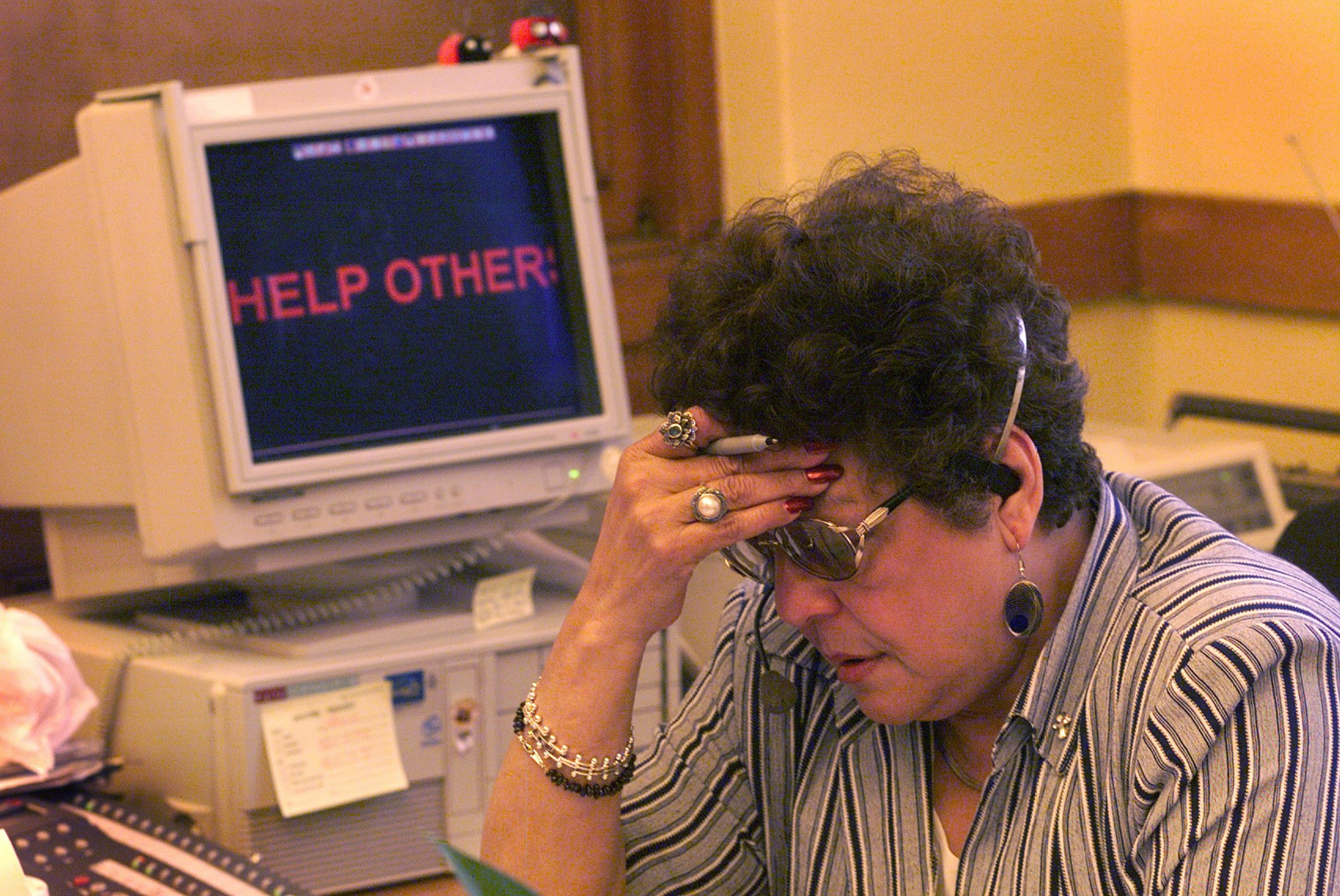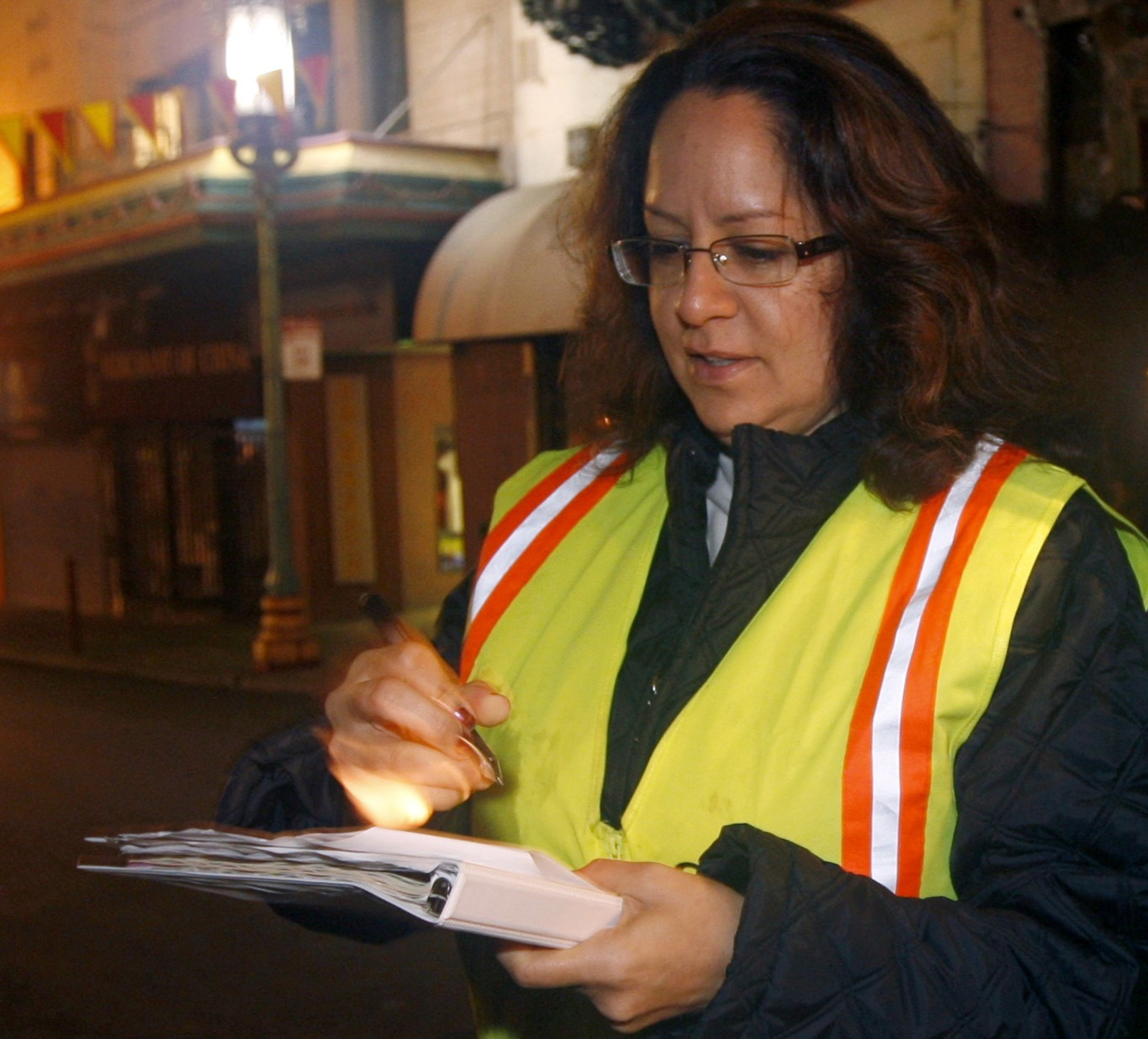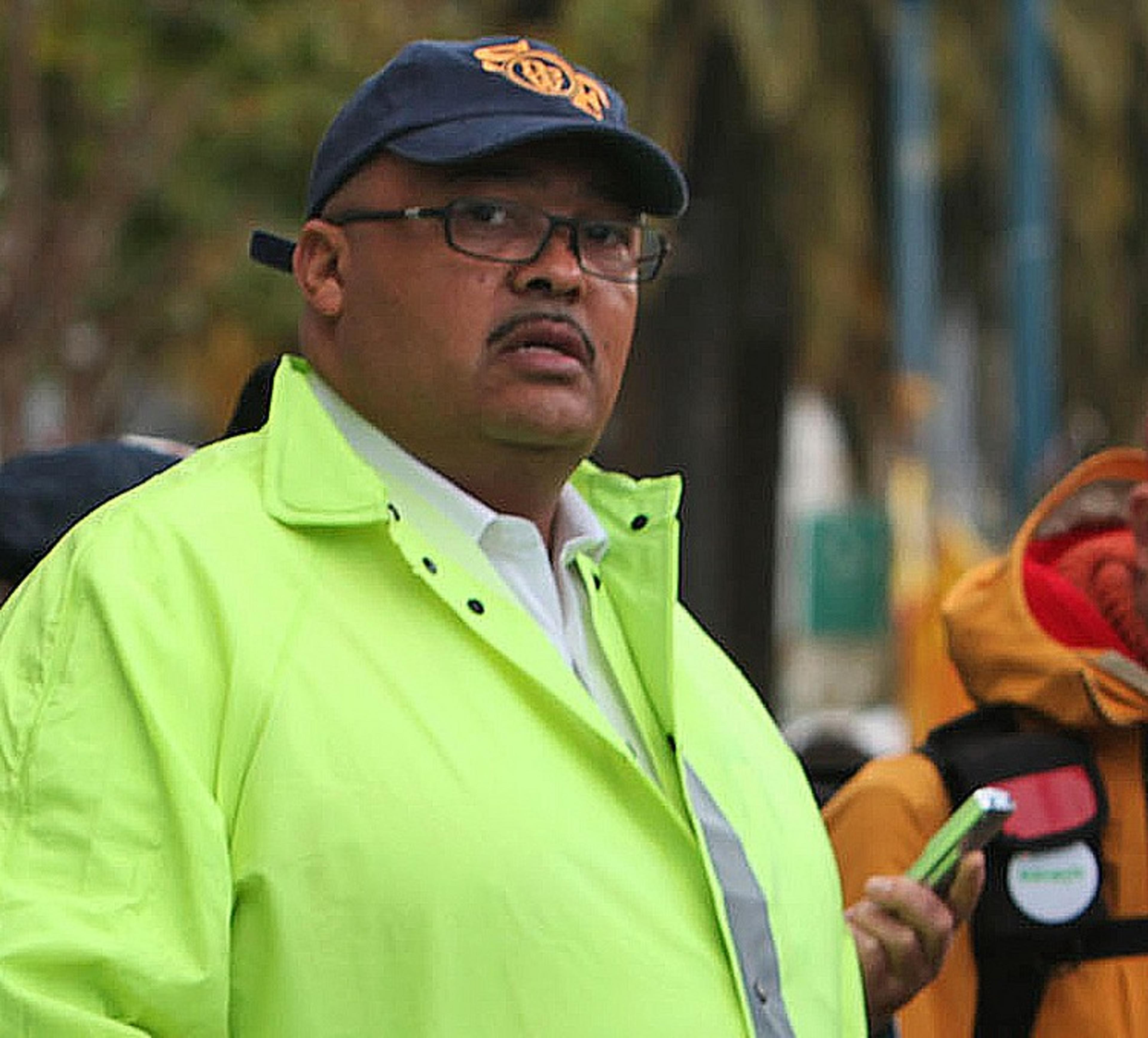Call 311.
That’s what neighborhood residents who want to connect with the mayor’s office have been directed to do since the seven-person Mayor’s Office of Neighborhood Services team shut down in early 2020, already weakened by the ongoing City Hall corruption scandal and ultimately another casualty of pandemic-era budget cuts.
For years, anyone could drop into Room 160 at City Hall and directly tell the mayor’s staff about problems on their block, invite the mayor to a community event or get an official proclamation certificate. Today, the office, known by its acronym MONS, is closed and its website directs visitors to call 311 (opens in new tab) or send an email requesting services.
Joelle Kenealey, a member of the Outer Mission Merchants and Residents Association, said she misses the citywide constituent-focused office. A representative would regularly attend monthly community meetings and was a useful point of contact.
“Over the years, I have developed my own list of contacts at various agencies to communicate with on a specific issue,” Kenealey said.
A neighborhood services office has been a feature of many San Francisco mayoral administrations, acting as the mayor’s eyes and ears on the streets and in community meetings, while maintaining relationships with important voting blocs. After all, knowing who to call about an issue can be confusing in a city and county with 11 supervisorial districts and dozens of agencies and departments.

Other cities value this function of government, too. Oakland has one and Boston’s Neighborhood Services (opens in new tab) department under Mayor Michelle Wu has three directors and 20 neighborhood liaisons.
“Constituent services are still very much in existence, and still very much a top priority for Mayor Breed and this administration,” Mayor London Breed’s spokesperson Parisa Safarzadeh said, referencing the two former MONS staffers who now take constituents calls from within the mayor’s communications office. “We’re hoping that with funding, we can replenish it and get us back on track. But unfortunately, the pandemic really forced us to make budget cuts and hard choices.”
Office Closure
Before the pandemic, five staffers served as liaisons to half a dozen or so neighborhoods and one staffer coordinated events under the supervision of the office’s director.
They held open meetings dubbed “office hours” in cafes and public spaces across the city each month and organized community celebrations in City Hall and in the neighborhoods for holidays such as Black History Month and Lunar New Year.
After the shelter-in-place public health order was issued in March 2020, the office was dissolved. Resources were reallocated for the Covid-19 Command Center and other emergency operations, leaving just the two staffers in the mayor’s communications office to answer constituent emails and phone calls.
“They’re routing and triaging and connecting throughout the city network as needed,” Safarzadeh said.
Safarzadeh added that all city departments work to quickly and effectively solve problems for residents. For instance, the mayor’s office works with the Office of Economic and Workforce Development to assist residents. The department did not respond to a request for comment.
Corruption Scandal
Covid-19 wasn’t the only thing that infected the office.
In January 2020, two months before the shelter-in-place orders were issued, MONS was thrust into turmoil when its director was found to be enmeshed in City Hall’s ongoing corruption scandal.
Sandra Zuniga, former director for both MONS and the quality-of-life issue tackling Fix-It Team, was put on administrative leave after city officials determined she was “Girlfriend 1” in the U.S. Attorney’s indictment of former Department of Public Works head Mohammed Nuru, who admitted to taking a wide range of bribes and kickbacks.
Zuniga, who was later also indicted, signed a plea agreement (opens in new tab) to money laundering charges and agreed to cooperate with federal investigators in March 2021. She is scheduled to change her plea in September, though details on the change are unknown.
Gallery of 2 photos
the slideshow
Zuniga was contacted for comment through her attorney’s office but no response was received.
The Fix-It Team, a remnant of Mayor Ed Lee’s administration, was shut down by the budget changes adopted in response to the pandemic but its services continue through the community engagement team and outreach enforcement team, according to DPW spokesperson Rachel Gordon.
Other Options
Matt Chamberlain, president of the Greater West Portal Neighborhood Association, never had occasion to use MONS.
“I will say it was as if that office never existed,” Chamberlain said. “I don’t know if some of the other neighborhoods specifically took advantage of contacts and resources that the Mayor’s Office of Neighborhood services provided. When I was president of the West of Twin Peaks Central Council it never really came up.”
Chamberlain said many other city departments have been dutiful in reaching out to West Portal. He singled out the San Francisco Municipal Transportation Agency, which has been performing many maintenance and improvement projects related to the Twin Peaks tunnel over the past five years.
“I would just say there was never any proactive outreach from MONS, and it never appeared to be a useful resource to us,” Chamberlain said. “We would proactively pursue DPW, SFMTA — the agencies that have big budgets and have big impacts.”
George Wooding, president of the Midtown Terrace Homeowners Association and a past president of both the West of Twin Peaks Central Council and Coalition for San Francisco Neighborhoods, describes himself as a pebble in the shoe of the mayor’s office.
He said that the city’s failure to support Proposition A, which would have provided Muni with $400 million for capital improvements, demonstrates the city’s need for better engagement with residents on the west side since they did not vote with the mayor’s agenda. “They have to do this outreach because they’re losing hundreds of millions of dollars,” Wooding said.
David Hooper, a retired Muni employee and president of the New Mission Terrace Improvement Association, said he relies on his district supervisor, Ahsha Safaí, and his four legislative aides for all constituent services ranging from putting in a stop sign to arranging tree plantings.
“I never had an occasion to depend upon MONS to solve an issue,” Hooper said.
He often goes to different city departments to try to get services for the residents in and around the neighborhood.
“I wouldn’t mind more clarity,” he said. “We’re the mayor’s constituents, too.”


